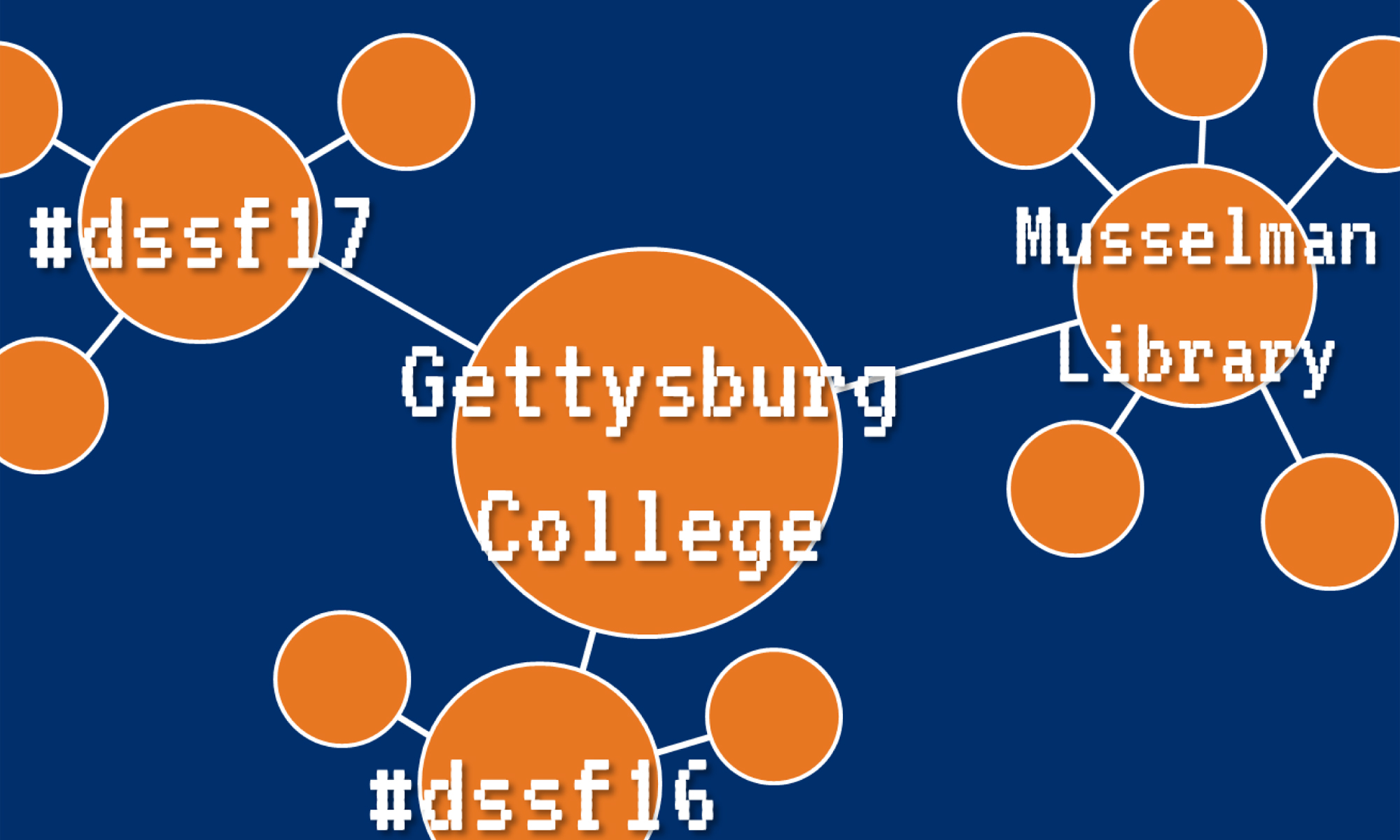So music bingo is apparently a thing in Canada. Who knew?
But before that, today was an introduction to DHSI in the morning and a brief overview of everything planned. There’s a lot of social stuff going on, and the schedule is pretty much packed with classes. There are also unconference sessions being decided upon and general meetups being finalized, so no shortage of ways to connect with people. I’m pretty sure I’ll be ready to curl up into a little introverted ball at the end of this week.
Classes officially started this morning, with Angel David Nieves and Janet Simons from Hamilton College‘s Digital Humanities Initiative leading us for the rest of the week. They started with an introduction to Hamilton College and the history of the DHi, but moved quickly into thinking about what makes DH, DH, and what makes DH, DH, at our institutions. There’s a lot of focus on the ideas of process and project, and what makes up the core components of DH. Process is hard to assess and quantify, but it’s what DH ultimately is, with the idea that your processes result in some sort of project as an outcome. But often there is little consideration as to the process, just the idea of getting to the project. Collaboration fits in there as well, and is another reason why DH is important, as it forces people working on DH to consider each other as equals in the research process. DH can’t be simply a service model, it collapses hierarchies and gets each member of a project team to contribute to the work in their own way. I have been fortunate to experience this during my time working with the Jack Peirs project (go #teampeirs) led by Ian Isherwood at Gettysburg.
We also talked about campus and institutional culture when doing DH work; DH work is experimental and risky, but institutions are often risk-averse and pass that mentality to those in it. Leadership is touted by institutions of higher education as a value they wish to instill in their students, yet those who are trying to lead change to support new initiatives run into roadblocks. What I hope is communicated is that those of us who are trying to lead the change are doing our best to be good stewards of the resources our institutions provide to us. We know budgets aren’t growing and there are fewer resources to go around. None of us want to fail (even if failure is simply part of the DH process) and let people down. That fear is huge, and I feel it. But I think we also know that until we try new things, we won’t learn from doing the same things over and over again, and allowing for missteps and mistakes and even failure along the way is good for us as an institution. And while leading through failure really isn’t a good model, sometimes we may be behind the curve a bit until we can find a way to break through. Thankfully, we have supportive people at Gettysburg, and while we tend conservative, there’s been enthusiasm towards getting our student program up and running, and I’m hoping to find ways to leverage that into a more intentional campus-wide model that is more dispersed and equitable among all the units that support DH on campus.
In the afternoon, we spoke as teams about the state of DH on our campuses, and while Gettysburg lacks any centralized DH program or structure, we have a lot of the right pieces in place. In the nearly 2 years since #ILiADS15, it’s been a fascinating ride to see how digital scholarship has been evolving with our loose band of librarians, educational technologists, and faculty working on projects. While institutionally we still exist in a mostly ad hoc model in how we approach support for faculty research, classroom assignments, and student projects, things are changing for the better. We have a digital scholarship committee in the library that supports DH work and runs the DSSF program. The Johnson Center for Creative Teaching and Learning has sponsored new grants that allow faculty to update assignments, using our students in the DSSF program to support assignment redesign and incorporate digital tools and DH methods. We have a growing student summer fellowship program that has support from the library, Educational Technology, and the Provost. Educational Technology launched a partner program focusing on technology this summer. We seem to be doing a lot of stuff right. The pieces are there, but there’s no unifying theme right now. It’s like having a puzzle without the box to look at and having a lot of other puzzle pieces mixed in. Right now it’s trying to see the big picture and pull out the pieces that don’t fit.
So the big question, so far, is “Why?,” as in, “Why are we doing this at Gettysburg? Why DH?” And I’m not sure how I can answer that fully quite yet, other than what the answer has been so far, that we are trying to provide students with creative undergraduate research opportunities and we want to give students tools to be digitally literate. And by training students, we can show faculty that students are excited to learn these new things, and hopefully pass that enthusiasm along. DH work is transformational, not only in how students and faculty conduct and present their research, but it also transforms how librarians become part of the research process.
But yeah, about that music bingo …
